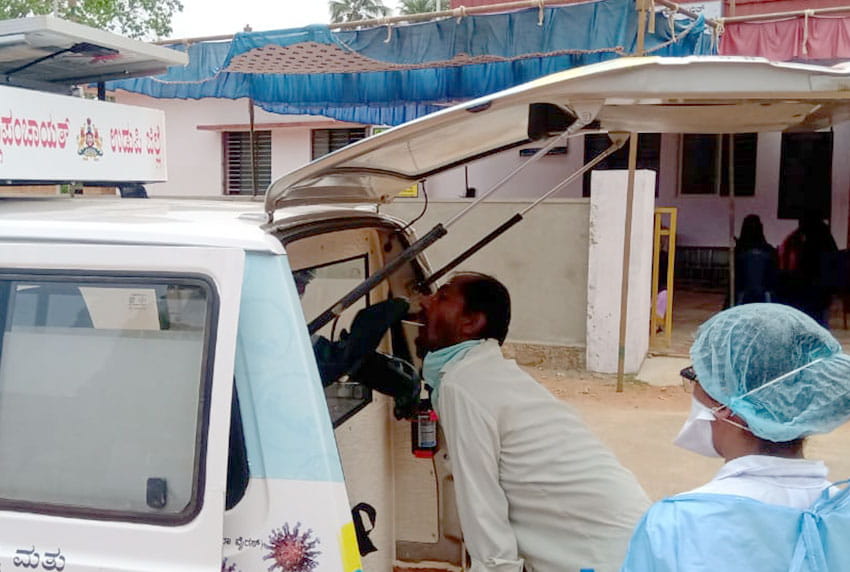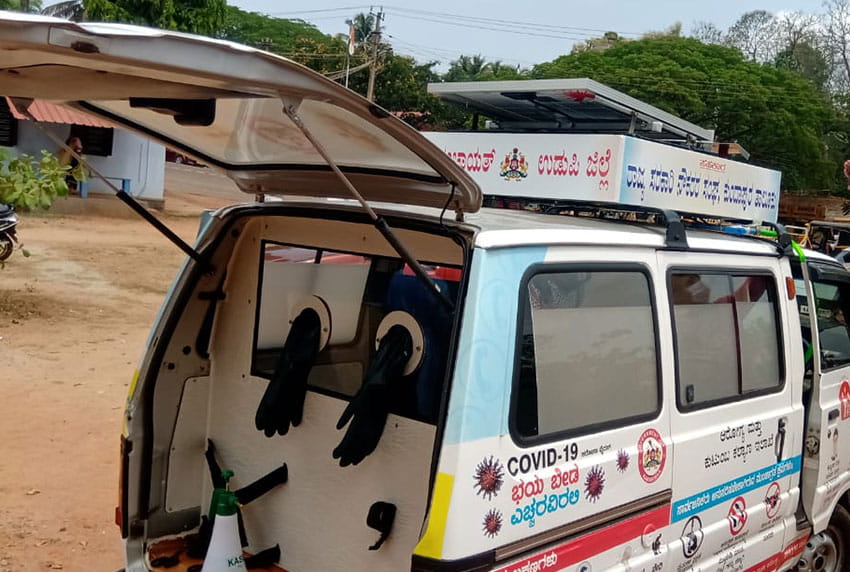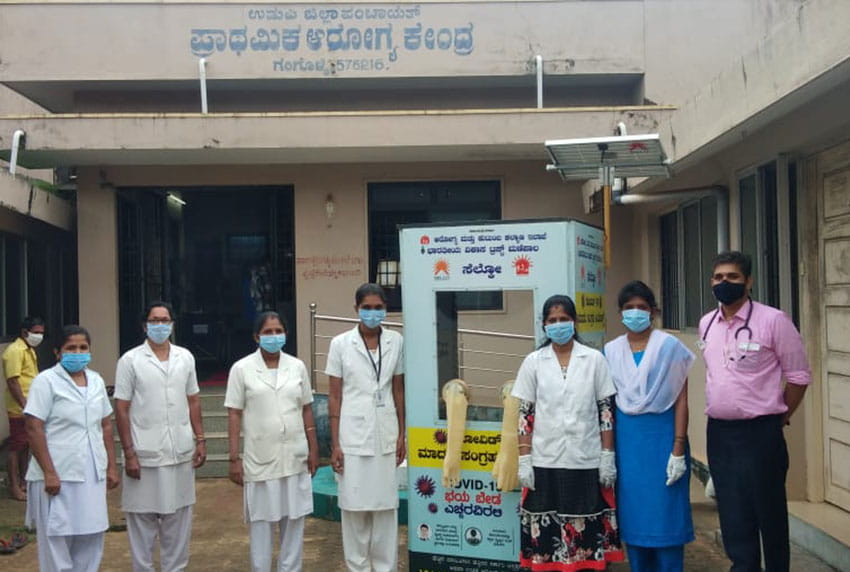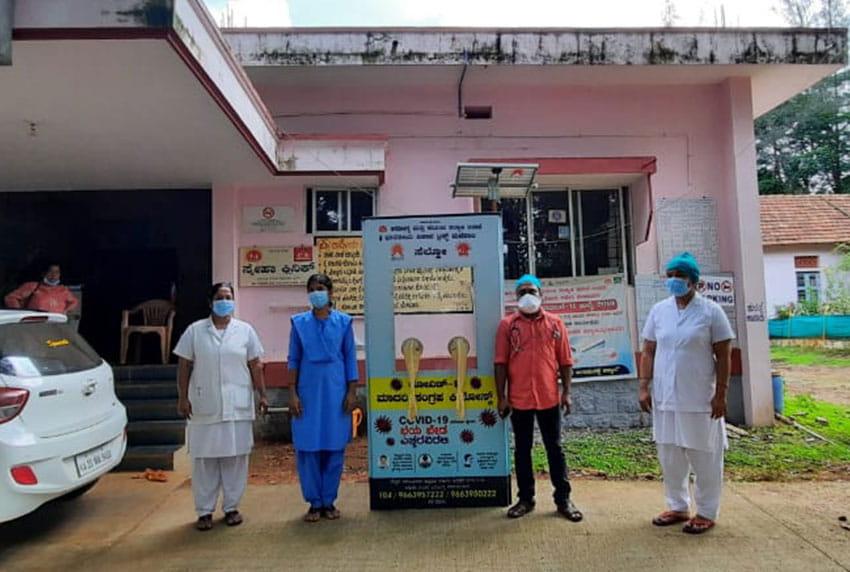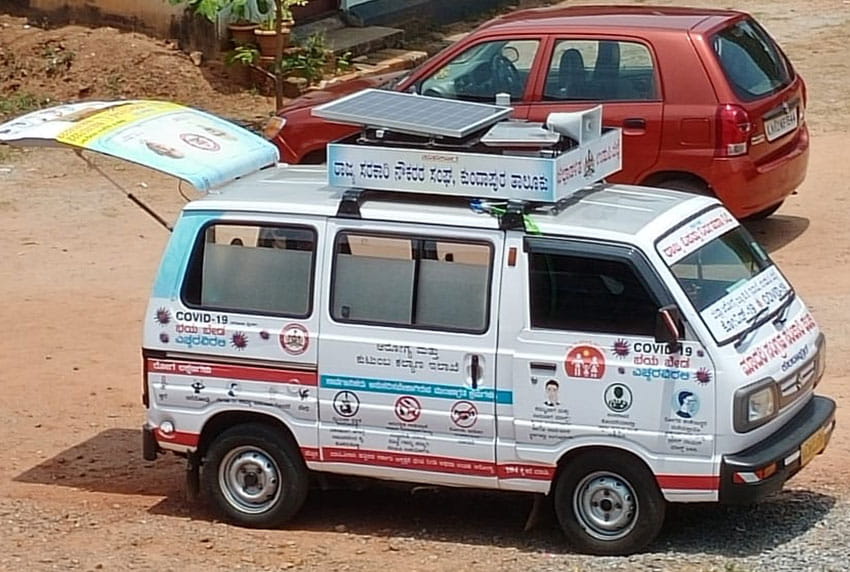Prize funds at work in India
The disruption of the pandemic has been global and absolute, but through the adversity, innovation and fast action, including by past winners of the Zayed Sustainability Prize, has been key in supporting action to fight COVID-19.
SELCO Foundation won the 2018 Prize in the Non-Profit Organisation category for their work in financing renewable and sustainable energy systems for low-income households in India. During COVID-19 however, they pivoted to support the provision of critical testing technology, putting Prize funds to use.
Situated less than 100km from Mangalore Airport, India’s Udupi District was a hotspot for returning migrants as COVID forced many from their jobs around the world. The influx created a problem for the local health department as they worked to control the spread through targeted and random testing, settling on mobile testing vans at check posts and entry points to solve the problem.
The Mobile COVID-19 Swab Collection vans were put to use in peak summer which created a health hazard for staff who were inside the airtight vehicles and in need of efficient cooling. Prize funds were deployed through SELCO Foundation who provided an innovative technological solutions to solar power the loads in the vehicles. The solution allowed the Solar Powered Mobile Swab Collection Units to be deployed to tackle COVID in the region, significantly improving testing rates.
Prize funds were also deployed in the state of Jharkhand where officials were struggling to keep up with the screening and sample collection from suspected cases. Healthcare workers were coming into direct contact with infected patients forcing the administration to divert tight budgets towards the purchase of PPE kits.
A cost-effective solution in the form of a solar powered sample collection kiosk was developed by SELCO Foundation; a mobile cubicle with gloves attached to the front through which health workers could take samples from suspected patients.
Through the sustainably powered solutions, frontline workers were able to safely test for around 15-17 hours a day, dramatically reducing the need for PPE kits and leading to reduced costs for the local health organisation. More than 850,000 tests have been conducted so far thanks to the solutions, ensuring the safety of area residents, many of whom were hesitant to visit hospitals but had the test completed thanks to the confidence they had in the locally provided service.
.svg?iar=0&hash=670E3638BC16C0DD69B262DD1184DEA8)

